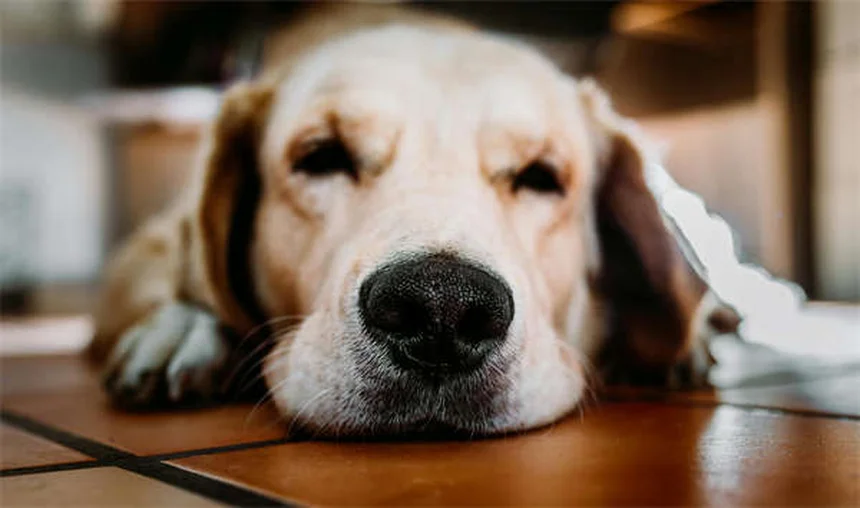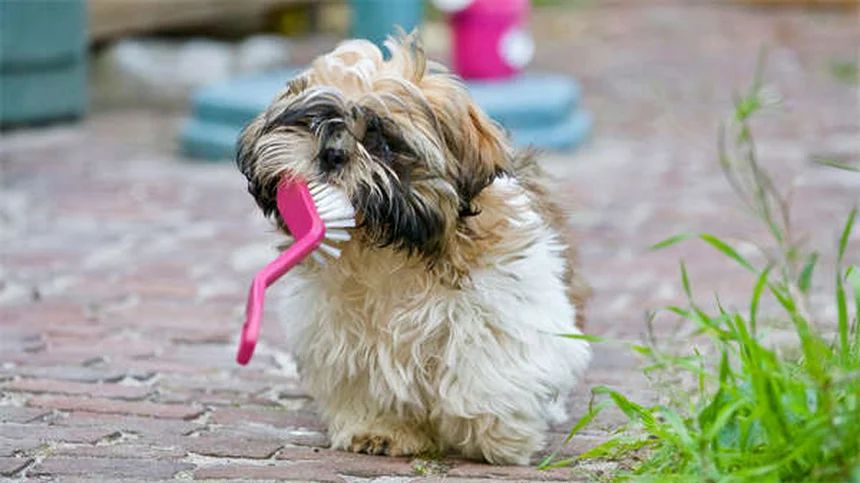Can guinea pigs get pneumonia from Streptococcus bacteria? The answer is absolutely yes - and it's more common than most pet owners realize. Streptococcus pneumoniae is one of the main culprits behind guinea pig respiratory infections, and here's why you should be concerned: this bacteria can turn deadly within hours while showing almost no warning signs initially. I've treated dozens of cases where seemingly healthy guinea pigs suddenly stopped eating and developed severe breathing problems overnight.
What makes this infection particularly tricky is that some guinea pigs become silent carriers - they spread the bacteria to cage mates without ever getting sick themselves. But when symptoms do appear, you'll typically notice your pet becoming lethargic, sneezing frequently, and losing interest in food. The good news? With early detection and proper veterinary care, most guinea pigs can recover fully. In this guide, I'll walk you through exactly what to watch for and how to protect your furry friends.
E.g. :10 Common Fish Tank Mistakes You're Probably Making
- 1、Understanding Streptococcus Pneumonia in Guinea Pigs
- 2、Diagnosing the Problem
- 3、Creating a Healing Environment
- 4、Your Action Plan
- 5、Beyond the Basics: Additional Considerations for Guinea Pig Health
- 6、Environmental Factors You Might Be Overlooking
- 7、Building a Strong Support System
- 8、Long-Term Health Monitoring
- 9、FAQs
Understanding Streptococcus Pneumonia in Guinea Pigs
What Exactly Is This Sneaky Bacteria?
Let me tell you about Streptococcus pneumoniae - it's like that uninvited party guest who shows up quietly but wreaks havoc once inside. These bacteria are major troublemakers for guinea pigs, causing pneumonia that can turn deadly fast. The scary part? Your furry friend might look perfectly healthy one day and collapse the next. I've seen it happen - a happy, munching guinea pig suddenly stops eating and within hours, things go downhill.
Here's how it spreads: Imagine guinea pig A sneezes near guinea pig B - boom! Infection passed. Or they share food, touch noses, or even just hang out in the same dirty cage. This bacteria spreads faster than gossip in a middle school locker room. And get this - some guinea pigs carry the bacteria without showing symptoms, becoming walking time bombs for their cage mates.
Spotting the Warning Signs
Your guinea pig can't tell you when it feels sick, so you've got to play detective. Look for these red flags:
| Mild Symptoms | Serious Symptoms |
|---|---|
| Sneezing fits | Labored breathing |
| Less enthusiastic about veggies | Swollen joints |
| Quieter than usual | High fever |
Ever seen a guinea pig that's lost its spark? That dull, depressed look is a huge warning sign. And if you notice weight loss - that's when you need to sound the alarm. I remember one case where a guinea pig stopped eating its favorite blueberries - that's like a teenager refusing pizza!
Diagnosing the Problem
 Photos provided by pixabay
Photos provided by pixabay
When to Rush to the Vet
Here's a question I get all the time: "How do I know when it's serious?" Great question! If your guinea pig shows any two symptoms from our table above, it's vet time. Don't wait until they're gasping for air - early action saves lives.
Your vet will play detective too, running tests on mucus, blood, and even urine. It's like CSI: Guinea Pig Edition. These tests pinpoint whether Streptococcus pneumoniae is the culprit or if something else is going on. I always tell owners - bring notes about your pet's behavior changes. That info is gold for diagnosis!
Treatment Options That Work
Now for the good news - we can fight back! Special antibiotics can knock out these bacteria, but here's the catch: guinea pigs are sensitive souls. The wrong antibiotic can cause more harm than good. That's why you must work with an exotic pet vet who knows guinea pig medicine.
For severely sick pets, we might add:
- Fluid therapy (like a guinea pig IV drip)
- Vitamin boosts
- Special high-calorie foods
Creating a Healing Environment
Home Care That Makes a Difference
Recovery isn't just about meds - it's about TLC. Set up a quiet recovery space away from noisy kids or barking dogs. Think of it as a guinea pig spa retreat. Clean the cage like you're prepping for surgery - I recommend a 1:10 bleach solution (rinse well!).
Here's a pro tip: use paper bedding during recovery. It's easier to spot unusual droppings that might indicate problems. And wash those hands! I can't stress this enough - you don't want to be the Typhoid Mary of guinea pig diseases.
 Photos provided by pixabay
Photos provided by pixabay
When to Rush to the Vet
Want to keep your guinea pigs safe? Make cleaning part of your daily routine. Scoop poop like you're mining for gold - daily! Change bedding at least twice a week. And quarantine new guinea pigs for two weeks - it's like a background check for bacteria.
Remember that outbreak at the Smith household last year? Started with one sick guinea pig from a pet store. Within a week, all six were sick. Proper quarantine could have prevented that heartbreak. Now they use separate cleaning tools for each cage - a bit extra, but effective!
Your Action Plan
Daily Monitoring Checklist
Print this out and stick it on the fridge:
- Morning veggie excitement level (1-10)
- Number of sneezes observed
- Water bottle consumption
- Activity level compared to normal
- Weight check (weekly)
When to Sound the Alarm
"Can't this wait until tomorrow?" Nope! If you see labored breathing or refusal to eat for more than 12 hours, it's emergency vet time. Guinea pigs hide illness well, but when they show symptoms, things are already serious. Better to be the overprotective parent than the grieving one.
Last thought - these little guys depend on us completely. With proper care and attention, Streptococcus pneumoniae doesn't stand a chance. Now go give your guinea pig some extra cilantro (their favorite!) and check those breathing sounds. Your furry friend is counting on you!
Beyond the Basics: Additional Considerations for Guinea Pig Health
 Photos provided by pixabay
Photos provided by pixabay
When to Rush to the Vet
You might not realize this, but stress is like gasoline on the fire when it comes to Streptococcus pneumoniae infections. I've seen cases where a perfectly healthy guinea pig developed pneumonia after just one stressful event - like a move to a new home or introduction to a dominant cage mate. Their little immune systems take a nosedive when stressed.
Here's something fascinating - guinea pigs actually produce more cortisol (that's the stress hormone) than many other small pets. That's why they need extra TLC during changes. Try playing soft classical music near their cage - studies show it lowers their heart rate. And never underestimate the power of a good hiding spot in their enclosure!
Nutrition's Role in Immune Defense
Did you know your guinea pig's diet could be their best defense against infections? Vitamin C is absolutely crucial - they can't produce it themselves like we can. A deficiency makes them sitting ducks for respiratory infections. But here's the kicker - most commercial guinea pig foods lose their vitamin C potency within weeks after opening.
Here's what I recommend for optimal health:
| Food Item | Vitamin C Content | How Often to Feed |
|---|---|---|
| Red Bell Pepper | 95mg per 1/4 cup | Daily |
| Parsley | 20mg per tablespoon | 3-4 times weekly |
| Kiwi | 64mg per slice | Twice weekly |
Ever wonder why some guinea pigs bounce back faster from illness than others? Nine times out of ten, it comes down to their nutritional status before getting sick. That's why I'm such a stickler about fresh veggies - they're like nature's medicine!
Environmental Factors You Might Be Overlooking
The Air They Breathe Matters
Here's a question that might surprise you: "Is your home's air quality putting your guinea pig at risk?" You bet it can! These little guys have super sensitive respiratory systems. Things you barely notice - like scented candles, air fresheners, or even that new carpet smell - can irritate their lungs and make them more susceptible to infections.
I recommend using an air purifier near their cage, especially if you live in a city. And never smoke near your guinea pigs - their tiny lungs can't handle it. One client's guinea pig developed chronic respiratory issues just from being in a house where someone smoked in another room!
Temperature and Humidity Control
Guinea pigs are Goldilocks when it comes to their environment - everything needs to be just right. Too cold? Their immune system slows down. Too hot? They can overheat dangerously fast. The sweet spot is between 65-75°F with about 40-60% humidity.
Here's a pro tip: place a digital thermometer/hygrometer near their cage (but out of reach!). I've walked into homes where owners thought their guinea pigs were comfortable, only to find the temperature swinging wildly throughout the day. Those poor pigs were basically living in a weather rollercoaster!
Building a Strong Support System
Finding the Right Vet
Not all vets are created equal when it comes to guinea pig care. You need someone who truly understands exotic pets. Ask potential vets how many guinea pigs they treat monthly - if it's less than five, keep looking. And here's an insider tip: vets who specialize in rabbits usually have good guinea pig knowledge too!
Ever been to a vet who tried to treat your guinea pig like a small dog? Disaster waiting to happen. The right vet will know things like which antibiotics are safe (hello, penicillin is toxic to them!) and how to properly restrain them without causing stress.
The Power of Guinea Pig Communities
You'd be amazed how much you can learn from other guinea pig owners. Online forums and local groups are goldmines for practical advice. When my first guinea pig got sick, it was a Facebook group that helped me spot the early symptoms and find an exotic vet in my area.
But here's the catch - take internet advice with a grain of salt. Always verify with your vet. I once saw a well-meaning owner nearly overdose their pet on vitamin C because "some guy on Reddit said more is better." Your vet went to school for this - trust their expertise!
Long-Term Health Monitoring
The Importance of Regular Check-ups
Think your healthy guinea pig doesn't need vet visits? Think again! Annual check-ups can catch potential issues before they become serious. Your vet can listen to their lungs, check their teeth (a common source of hidden problems), and assess their overall condition.
Here's something most owners don't know: guinea pigs are masters at hiding illness until it's advanced. That "annual" visit might be the only chance to catch something early. I recommend scheduling check-ups around their birthday - makes it easier to remember!
Keeping Detailed Health Records
Start a health journal for your guinea pig today! Note things like appetite changes, unusual behaviors, and weight fluctuations. Over time, you'll spot patterns that could indicate health issues. I use a simple notebook divided into sections:
- Daily observations (quick notes)
- Weight tracking (weekly)
- Vet visits and treatments
- Diet changes
When an emergency hits, having this information ready can save precious time. Plus, vets love organized owners - it helps them make better diagnoses! Remember, you're not just a pet owner - you're your guinea pig's personal health advocate.
E.g. :Anyone had piggies that recovered from pneumonia? : r/guineapigs
FAQs
Q: How do I know if my guinea pig has Streptococcus pneumonia?
A: Look for these telltale signs: sneezing fits (more than occasional), loss of appetite (especially for favorite treats), and labored breathing (you might notice wheezing or chest movements). What really worries me as a vet is when owners report their usually vocal guinea pig has gone quiet - that depression is a major red flag. Keep a daily log of your pet's veggie excitement level (seriously, it helps!). If you notice two or more symptoms developing, don't wait - call your exotic pet vet immediately. Guinea pigs hide illness well, so by the time symptoms appear, they're already pretty sick.
Q: Can humans catch Streptococcus from guinea pigs?
A: While it's rare, yes - there is some risk. Here's what you need to know: The Streptococcus pneumoniae strain that affects guinea pigs isn't the same as human versions, but immunocompromised people should take extra precautions. I always recommend wearing disposable gloves when handling sick guinea pigs and washing hands thoroughly with antibacterial soap afterward. One case I remember involved a child undergoing chemotherapy whose guinea pig was a carrier - we had to implement strict hygiene protocols. Better safe than sorry!
Q: What's the survival rate for guinea pigs with Streptococcus pneumonia?
A: With early treatment, about 70-80% recover fully - but timing is everything. The critical window is the first 48 hours after symptoms appear. Once a guinea pig stops eating completely or develops severe breathing difficulty, the prognosis drops significantly. That's why I stress daily monitoring so much. The survival rate jumps to over 90% when treatment begins within the first day of noticeable symptoms. Pro tip: Keep critical care formula on hand - being able to syringe-feed while waiting for your vet appointment can be lifesaving.
Q: How often should I clean my guinea pig's cage to prevent infection?
A: Here's my gold standard cleaning routine that's prevented outbreaks in multi-pig households: Daily - spot clean wet areas and remove soiled bedding. Twice weekly - full bedding change and wipe down surfaces with vinegar solution. Monthly - deep clean with 1:10 bleach solution (rinse thoroughly!). I've found that paper bedding changed every 3-4 days works best for monitoring health - you can easily spot abnormal droppings. Remember, a clean cage is your first line of defense against Streptococcus pneumoniae and other pathogens.
Q: Are some guinea pigs more prone to Streptococcus infections?
A: Absolutely. Based on my clinical experience, these guinea pigs are at higher risk: Seniors (over 4 years old), pregnant females, those with previous respiratory issues, and guinea pigs living in crowded conditions. Stress is a huge factor too - I've seen many cases flare up after moves, introductions of new cage mates, or even loud household changes. If you have a high-risk piggy, consider adding a daily wellness check to your routine. Their immune systems need all the help they can get!


